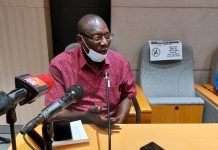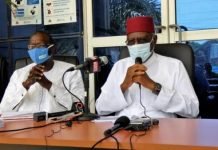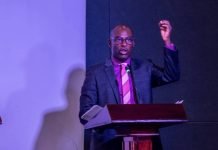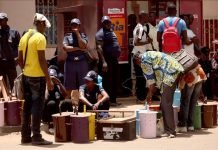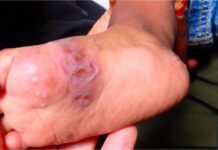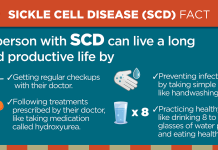
By Patience Loum
Six months after the submission of the Truth, Reconciliation and Reparations Commission’s (TRRC) Final Report, the Gambia Government published its White Paper highlighting four options it would pursue to prosecute perpetrators who bear the most responsibility for human rights violations committed under the two-decade-long rule of President Yahya Jammeh.
Former President Jammeh seized power in July 1994 from the country’s first President, Sir Dawda Jawara, whose reign lasted for about 30 years. In December 2016, an opposition coalition candidate defeated Jammeh in a tightly contested presidential election.
Jammeh accepted defeat but later insisted that the election was stolen. He only vacated his seat after protracted negotiations with ECOWAS leaders and the threat of a military intervention. Jammeh left for exile in January 2017.
Investigate alleged rights violations
President Adama Barrow had campaigned on a promise to restore rule of law, democratic governance and respect for human rights. Consequently, in 2018, the Barrow administration established the TRRC to investigate the alleged human rights violations that took place between July 1994 and January 2017 and the culpability of President Jammeh and his close associates.
The TRRC report highlighted how President Jammeh’s regime and his co-perpetrators violated the human rights of Gambians and non-Gambians alike, resulting in up to 1,010 victims.
In one mass killing that occurred in 2005, the former President is alleged to have ordered the killing of some 44 West African migrants from Ghana, Nigeria, Senegal, Ivory Coast and Togo.
Thus, according to the TRRC Report, former President Jammeh and his co-perpetrators bear the greatest responsibility for the unlawful killings, sexual violence, torture, enforced disappearances, and the persecution including through arbitrary arrests and unlawful detentions of the opposition, journalists and human rights activists.
Who’s responsible for most secious crimes?
The Gambia government has only issued a list of up to 90 people who are adversely mentioned, but it has yet to determine from among them those who bear the most responsibilities for alleged human rights attrocities.
According to an official at the Ministry of Justice, the names (or the list) of those who bear the most responsibilities is not yet out. It will be determined once a Special Prosecutor’s Office is put in place. This will be done by the end of this year.
Read More: Explainer: Who are the 90 Adversely Mentioned Persons Recommended to Face Justice Over Alleged Human Rights Violations?
After losing Presidential Elections in December 2016, former President Jammeh fled to Equatorial Guinea where he currently lives in exile. Equatorial Guinea is not a signatory to the Rome Statute which established the International Criminal Court (ICC). This complicates his potential extradition to face trial before the ICC as set out in option D below.
From a review of the White Paper, the government has stated their preference on the TRRC options to pursue prosecution.
Here are the various options recommended by the TRRC for prosecution of those who bear the most responsibility for human rights violations perpetrated under the Jammeh regime:
TRRC Options Recommended for Prosecution
In Volume (1) Compendium (Part B) of the TRRC report titled ‘Recommendations for Prosecution’, the TRRC recommended four potential options for prosecution under section (6) of the report which focuses on jurisdiction and admissibility.
Below is a short summary of the four options recommended by the TRRC:
Option A – Using Gambian laws to prosecute those who bear the most responsibility for human rights violations under Jammeh’s regime. However, some of the crimes that the TRRC Recommended for prosecution like torture may be challenging to pursue under the current Gambian Legislative Framework.
Option B – Prosecution in the Gambia with an established internationalized tribunal which will allow the participation of Gambians and non-Gambians alike. However, there are security concerns around prosecuting former President Jammeh in The Gambia.
Option C – Prosecution in neighbouring countries similar to option B such as in the case of Hissène Habre before the Extraordinary African Chambers in Senegal. Possible countries for prosecution include Senegal, Ghana, and Sierra Leone.
Option D – Prosecution at the International Criminal Court (ICC) for crimes against humanity. However, there are a number of challenges with this option such as the admissibility of the case before the ICC would require a high threshold for crimes against humanity and the fact that the ICC’s Jurisdiction starts from June 2002 meaning that this would exclude serious crimes that occurred from 1994 to June 2002.
Government’s Preferred Option
In the White Paper issued on 25 May, 2022, the Gambia government presented a synopsis of its preferred mode of prosecution which appears to be a mixture of A, B and C with certain variations.
Paragraph 19 of the Government’s White Paper states that “the Government is in the process of setting up a Special Prosecutor’s Office under the Attorney General’s Chambers and Ministry of Justice with a mandate to carry out investigations and prosecutions as laid out in this White Paper.”
Paragraph 20 adds that “the Government intends to create a special judicial framework within our domestic Court system for the prosecution of perpetrators of Human Rights abuses and violations. Legislative changes will be effected to give it jurisdiction over the offence of torture as well as over international crimes. The Court shall be located within The Gambia with the option of holding sittings in other countries based on the exigencies of each case.”
Our enquiries with the Ministry of Justice Legal Team states that prosecutions will be carried out under Gambian laws and before Gambian judges, with the option of holding sittings of the court in other countries, thereby balancing the need to prioritize local ownership and victim participation with security concerns and witness protection requirements.

Special judicial framework
During the press conference held on the sidelines of launch of the White Paper, the Minister of Justice, Dawda Jallow, told journalists that the government will consider entering into a bilateral agreement with a regional body such as ECOWAS for the creation of a special judicial framework.
This will make it possible for the Gambia to utilize international law in the prosecution of human rights violations, and overcome the hurdle of prosecuting offences such as torture which is not currently criminalized in The Gambia.
Based on paragraphs 19 and 20 and comments emanating from the Ministry of Justice, it appears that the government will be pursuing a hybrid route, which is a mix of the domestic (A) and international options (C).
But this should be preceded by legal reforms. As of the time of this publication, no related legal reform bills have been sent to the National Assembly.
According to the TRRC Report, the Domestic Option (A) has its own pros and cons and these are listed below:
| Pros | Cons |
| -Strengthen the capacity of the Gambian Judiciary and judges in dealing with international crimes. | -The Gambia does not have the relevant applicable international laws in its law books. |
| -Gives victims access to the proceedings. | -Having the torture bill passed in 2022 will not apply retrospectively, which means it will only apply to people who commits acts of torture after it is passed. |
| -improve the Judicial infrastructure and general access to Justice. | -Proper prosecution of Yahya Jammeh in The Gambia must necessarily be based on some newly created regime that will import all the relevant international crimes |
| – trying Jammeh in Gambia may pose certain safety and security concerns. |

Internationalised tribunal
Paragraph 20 of the White Paper notes that cases may not only be pursued in the Gambia but that there would be “the option of holding sittings in other countries based on the exigencies of each case”.
This appears very similar to option C which involves prosecuting perpetrators in other countries with an Internationalized Tribunal using Gambian laws.
Speaking to Lawyers from the Ministry of Justice, it was brought to our attention that the Supreme Court in the case of The State v Yankuba Touray affirmed that International Law was applicable in The Gambia.
As such, international conventions such as the UN Convention against Torture which The Gambia signed on 23 October, 1985 and ratified on 28 September, 2018, will be applicable in The Gambia.
However, the only downside of this is that the Convention falls short of prescribing penalties for offenders. As highlighted above, however, collaboration with regional organizations such as ECOWAs could pave the way for the application of International Criminal Law.
- UPDATED to add context and comment from the Ministry of Justice in paragraphs 8 and 9


